29 origins of common phrases
Nathan Johnson
Published
08/30/2018
in
wow
did you ever wonder where these came from?
- List View
- Player View
- Grid View
Advertisement
-
1.
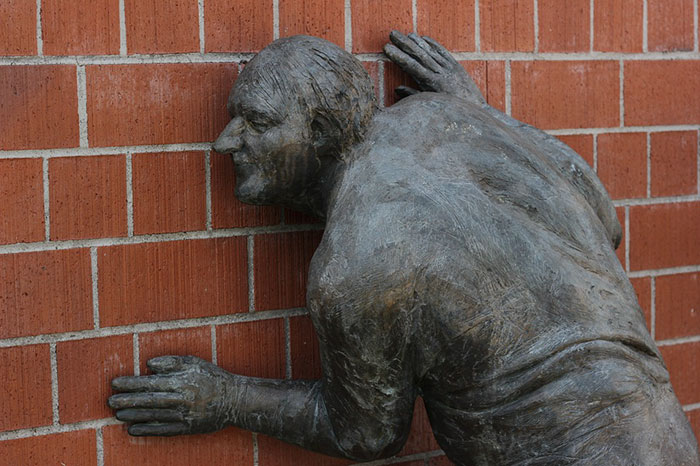 The Walls Have Ears Meaning: Be careful what you say as people may be eavesdropping. Origin: The face Louvre Palace in France was believed to have a network of listening tubes so that it would be possible to hear everything that was said in different rooms. People say that this is how the Queen Catherine de’Medici discovered political secrets and plots.
The Walls Have Ears Meaning: Be careful what you say as people may be eavesdropping. Origin: The face Louvre Palace in France was believed to have a network of listening tubes so that it would be possible to hear everything that was said in different rooms. People say that this is how the Queen Catherine de’Medici discovered political secrets and plots. -
2.
 Bury The Hatchet Meaning: End a quarrel or conflict and become friendly. Origin: During negotiations between Puritans and Native Americans men would bury all of their weapons, making them inaccessible.
Bury The Hatchet Meaning: End a quarrel or conflict and become friendly. Origin: During negotiations between Puritans and Native Americans men would bury all of their weapons, making them inaccessible. -
3.
 Big Wig Meaning: An important person, especially in a particular sphere Origin: Back in the 18th century, the most important political figures would wear the biggest wigs, hence today influential people are called big wigs.
Big Wig Meaning: An important person, especially in a particular sphere Origin: Back in the 18th century, the most important political figures would wear the biggest wigs, hence today influential people are called big wigs. -
4.
 Cold Feet Meaning: Loss of nerve or confidence. Origin: This idiom originates from a military term, warriors who had frozen feet were not able to rush into battle.
Cold Feet Meaning: Loss of nerve or confidence. Origin: This idiom originates from a military term, warriors who had frozen feet were not able to rush into battle. -
5.
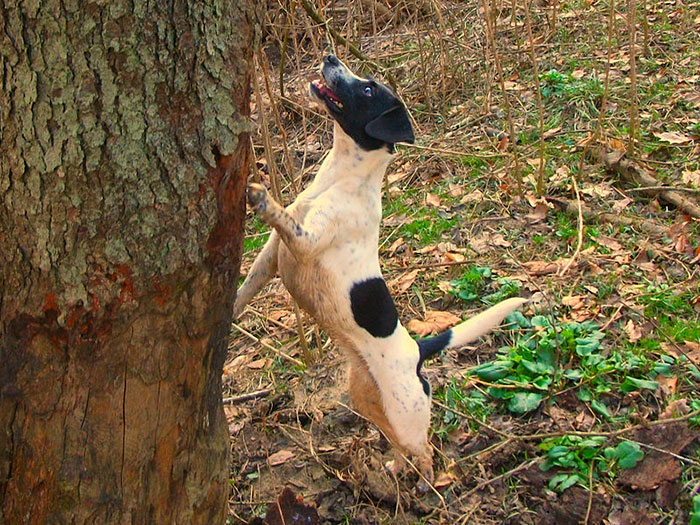 Barking Up The Wrong Tree Meaning: Be pursuing a mistaken or misguided line of thought or course of action. Origin: This phrase refers to hunting dogs who chase their prey up a tree. Once it climbed the tree the dogs bark at them, yet sometimes the dogs would continue barking even if the prey was no longer there.
Barking Up The Wrong Tree Meaning: Be pursuing a mistaken or misguided line of thought or course of action. Origin: This phrase refers to hunting dogs who chase their prey up a tree. Once it climbed the tree the dogs bark at them, yet sometimes the dogs would continue barking even if the prey was no longer there. -
6.
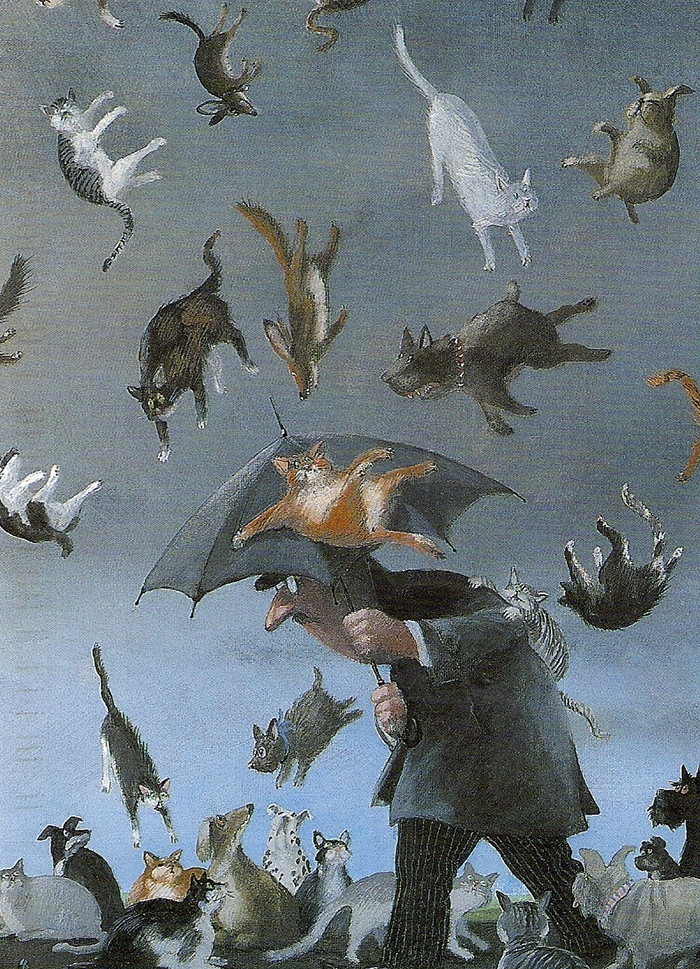 Raining Cats And Dogs Meaning: Rain very hard. Origin: This idiom has two stories that try to explain its origin. The first explanation says that the origin of this phrase comes from Norse mythology, where cats would symbolize heavy rains and dogs were associated with the God of storms, Odin. The second version says that in 16th century England, houses had thatched roofs which were one of the few places where animals were able to get warm. Sometimes, when it would start to rain heavily, roofs would get slippery and cats and dogs would fall off, making it look like it’s raining cats and dogs!
Raining Cats And Dogs Meaning: Rain very hard. Origin: This idiom has two stories that try to explain its origin. The first explanation says that the origin of this phrase comes from Norse mythology, where cats would symbolize heavy rains and dogs were associated with the God of storms, Odin. The second version says that in 16th century England, houses had thatched roofs which were one of the few places where animals were able to get warm. Sometimes, when it would start to rain heavily, roofs would get slippery and cats and dogs would fall off, making it look like it’s raining cats and dogs! -
7.
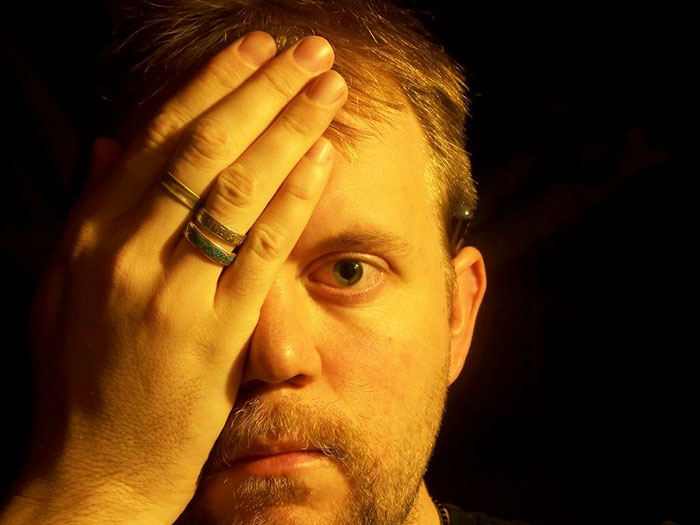 Turn A Blind Eye Meaning: Pretend not to notice. Origin: It is believed that this phrase originates with naval hero Horatio Nelson, who used his blind eye to look through his telescope. This way he was able to avoid signals from his superior, who wanted him to withdraw from battle. He attacked, nevertheless, and was victorious.
Turn A Blind Eye Meaning: Pretend not to notice. Origin: It is believed that this phrase originates with naval hero Horatio Nelson, who used his blind eye to look through his telescope. This way he was able to avoid signals from his superior, who wanted him to withdraw from battle. He attacked, nevertheless, and was victorious. -
8.
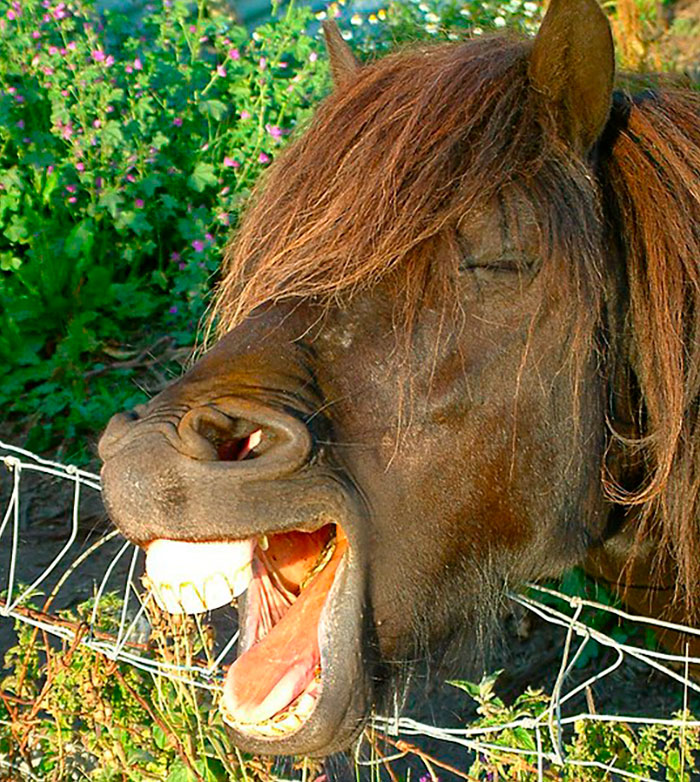 Don't Look A Gift Horse In The Mouth Meaning: Find fault with something that has been received as a gift or favor. Origin: While buying a horse, people would determine the horse’s age and condition based on its teeth, and then decide whether they want to buy it or not. This is the reason why people use this idiom to say it is rude to look for flaws in a thing that was given to you as a gift.
Don't Look A Gift Horse In The Mouth Meaning: Find fault with something that has been received as a gift or favor. Origin: While buying a horse, people would determine the horse’s age and condition based on its teeth, and then decide whether they want to buy it or not. This is the reason why people use this idiom to say it is rude to look for flaws in a thing that was given to you as a gift. -
9.
 Honeymoon Meaning: A holiday spent together by a newly married couple. Origin: According to tradition, a newly wed couple would have to drink a beverage with honey for an entire month for fertility and good luck
Honeymoon Meaning: A holiday spent together by a newly married couple. Origin: According to tradition, a newly wed couple would have to drink a beverage with honey for an entire month for fertility and good luck -
10.
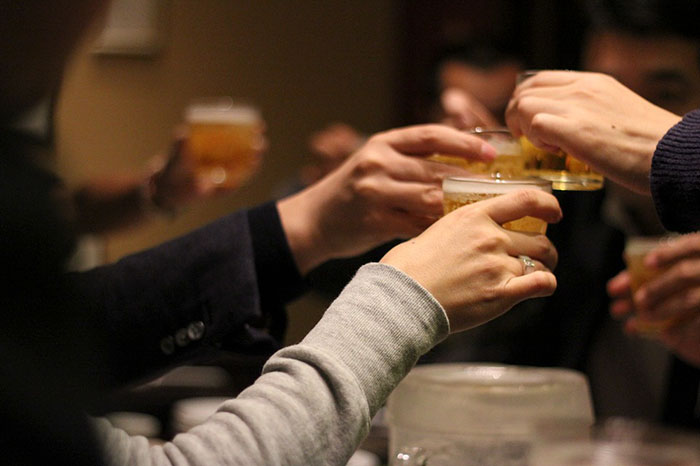 One For The Road Meaning: A final drink before leaving a place. Origin: During the middle ages, the condemned ones were taken through what today is known as Oxford Street to their execution. During this final trip, the cart would stop and they would be allowed to have one final drink before their death.
One For The Road Meaning: A final drink before leaving a place. Origin: During the middle ages, the condemned ones were taken through what today is known as Oxford Street to their execution. During this final trip, the cart would stop and they would be allowed to have one final drink before their death. -
11.
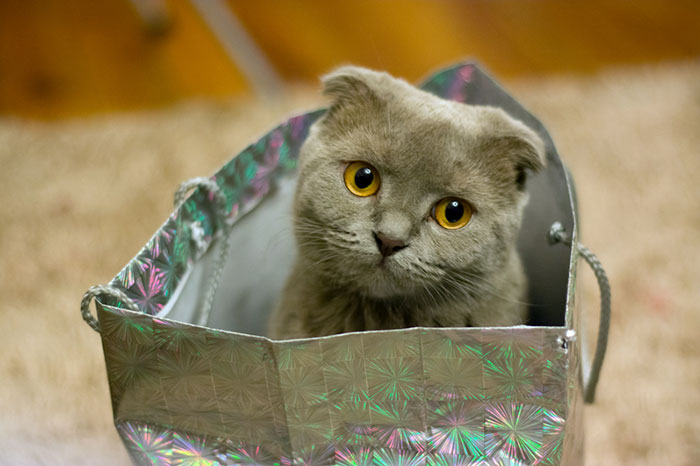 Let The Cat Out Of The Bag Meaning: Reveal a secret carelessly or by mistake. Origin: Some time ago farmers who sold pigs would bring them to the market wrapped up in a bag. Unscrupulous ones would replace the pig with a cat and if someone would accidentally let the cat out, their fraud would be uncovered.
Let The Cat Out Of The Bag Meaning: Reveal a secret carelessly or by mistake. Origin: Some time ago farmers who sold pigs would bring them to the market wrapped up in a bag. Unscrupulous ones would replace the pig with a cat and if someone would accidentally let the cat out, their fraud would be uncovered. -
12.
 Riding Shotgun Meaning: Used to claim the right to sit in the front passenger seat of a vehicle on a particular journey. Origin: This expression refers to the passenger of an old fashioned stagecoach, who sat next to the driver with a shotgun to protect from attackers and robbers along the way. There is no evidence to suggest the expression was actually used in times of the ‘Wild West,’ but most likely came about much later on, when media and films began to romanticize the period.
Riding Shotgun Meaning: Used to claim the right to sit in the front passenger seat of a vehicle on a particular journey. Origin: This expression refers to the passenger of an old fashioned stagecoach, who sat next to the driver with a shotgun to protect from attackers and robbers along the way. There is no evidence to suggest the expression was actually used in times of the ‘Wild West,’ but most likely came about much later on, when media and films began to romanticize the period. -
13.
 Break A Leg Meaning: Good luck! Origin: It is believed that the phrase dates to World War I Germany and a saying used by German actors “Hals- und Beinbruch” which translates to “a broken neck and a broken leg.” Besides that, it still doesn’t make sense why would you wish someone to break a leg? Well, as it turns out, popular folklore down through the ages encouraged people to wish others bad luck since it was believed that wishing someone good luck would tempt evil spirits. So, you guessed it, people started wishing each other to break a leg in order for them not to break one!
Break A Leg Meaning: Good luck! Origin: It is believed that the phrase dates to World War I Germany and a saying used by German actors “Hals- und Beinbruch” which translates to “a broken neck and a broken leg.” Besides that, it still doesn’t make sense why would you wish someone to break a leg? Well, as it turns out, popular folklore down through the ages encouraged people to wish others bad luck since it was believed that wishing someone good luck would tempt evil spirits. So, you guessed it, people started wishing each other to break a leg in order for them not to break one! -
14.
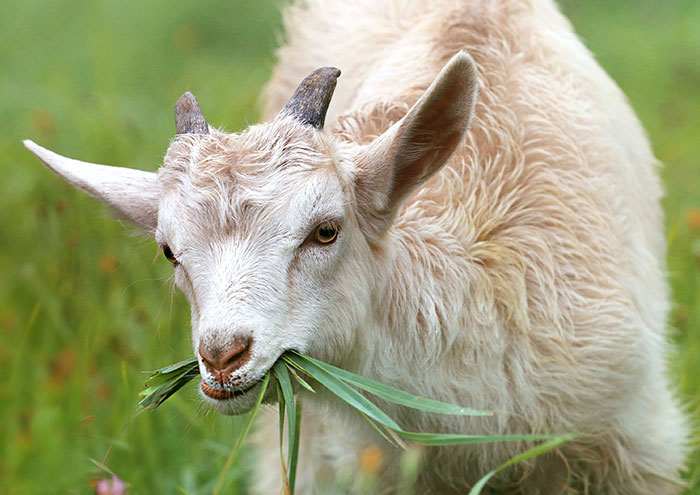 Get One's Goat Meaning:Irritate someone. Origin: During horse racing some horses would get anxious, so owners would places goats in the stalls with them to calm them down. Rival horse owners would sometimes steal these goats therefore upsetting the horse and making it more likely to lose.
Get One's Goat Meaning:Irritate someone. Origin: During horse racing some horses would get anxious, so owners would places goats in the stalls with them to calm them down. Rival horse owners would sometimes steal these goats therefore upsetting the horse and making it more likely to lose. -
15.
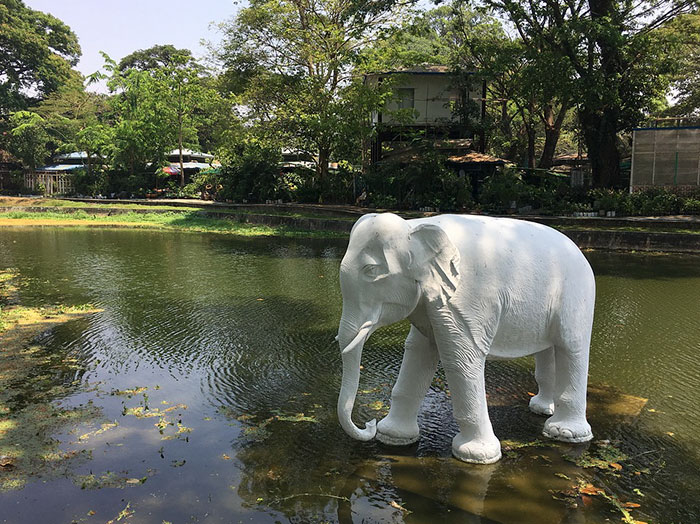 White Elephant Meaning: A possession that is useless or troublesome, especially one that is expensive to maintain or difficult to dispose of. Origin: White elephants were considered to be sacred creatures in Thailand, yet they were also very hard to take care of. It is believed that Siamese kinds (now Thailand) would gift white elephants as a subtle form of punishment, since taking care of this animal would drive the recipient into financial ruin.
White Elephant Meaning: A possession that is useless or troublesome, especially one that is expensive to maintain or difficult to dispose of. Origin: White elephants were considered to be sacred creatures in Thailand, yet they were also very hard to take care of. It is believed that Siamese kinds (now Thailand) would gift white elephants as a subtle form of punishment, since taking care of this animal would drive the recipient into financial ruin. -
16.
 My Ears Are Burning Meaning: One is subconsciously aware of being talked about or criticized. Origin: The idiom dates back to ancient Romans who believed that burning sensations in various organs had different meanings. In fact, it was believed that if your left ear is burning it signaled an evil intent, and if your right ear was burning you were actually being praised.
My Ears Are Burning Meaning: One is subconsciously aware of being talked about or criticized. Origin: The idiom dates back to ancient Romans who believed that burning sensations in various organs had different meanings. In fact, it was believed that if your left ear is burning it signaled an evil intent, and if your right ear was burning you were actually being praised. -
17.
 Born With A Silver Spoon In Your Mouth Meaning: Be born into a wealthy family of high social standing. Origin: It is an old tradition for godparents to gift a silver spoon to a christened child. However, not everyone was able to afford this type of luxury gift so those who did receive the spoon as a gift were considered to be wealthy, sometimes even spoiled.
Born With A Silver Spoon In Your Mouth Meaning: Be born into a wealthy family of high social standing. Origin: It is an old tradition for godparents to gift a silver spoon to a christened child. However, not everyone was able to afford this type of luxury gift so those who did receive the spoon as a gift were considered to be wealthy, sometimes even spoiled. -
18.
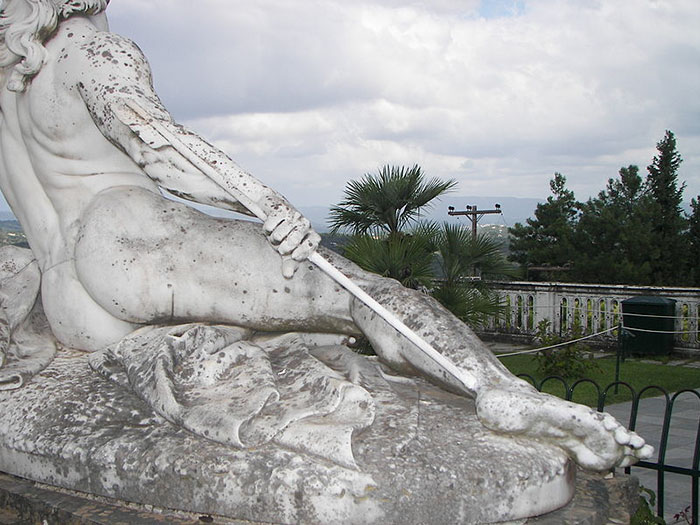 Achilles Heel Meaning: A weakness or vulnerable point. Origin: This phrase comes from Greek mythology, where Thetis dipped her son Achilles in the Styx, a river that was believed to be a source of incredible power and invulnerability. However, Thethis was holding her son by his heel, meaning it was the only part of his body that was not touched by water, making his heel vulnerable. Eventually, Achilles was killed by the shot of an arrow in his heel.
Achilles Heel Meaning: A weakness or vulnerable point. Origin: This phrase comes from Greek mythology, where Thetis dipped her son Achilles in the Styx, a river that was believed to be a source of incredible power and invulnerability. However, Thethis was holding her son by his heel, meaning it was the only part of his body that was not touched by water, making his heel vulnerable. Eventually, Achilles was killed by the shot of an arrow in his heel. -
19.
 Sun Of A Gun Meaning: A jocular or affectionate way of addressing or referring to someone. Origin: Back in the day, sailors would sometimes take their wives on long ocean voyages. It is believed that if the woman gave birth on a ship, it should take place between the cannons on the ship’s gun deck, since it was the most secluded place. Because of this reason, a child that was born on a ship would be called ‘a son of a gun’.
Sun Of A Gun Meaning: A jocular or affectionate way of addressing or referring to someone. Origin: Back in the day, sailors would sometimes take their wives on long ocean voyages. It is believed that if the woman gave birth on a ship, it should take place between the cannons on the ship’s gun deck, since it was the most secluded place. Because of this reason, a child that was born on a ship would be called ‘a son of a gun’. -
20.
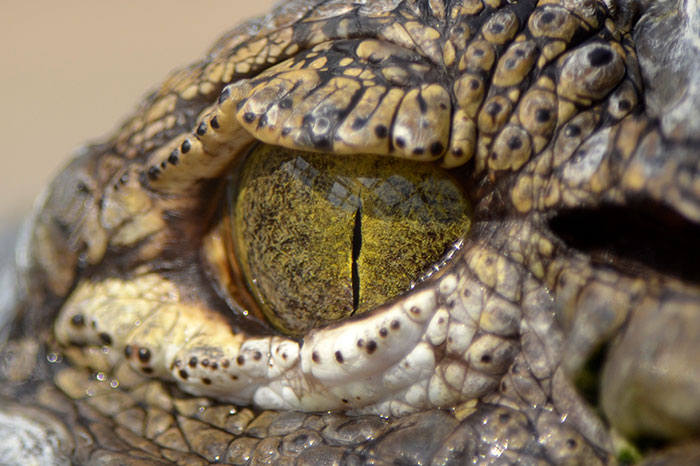 Crocodile Tears Meaning: Tears or expressions of sorrow that are insincere. Origin: Written in the 14th century, a book called “The Travels of Sir John Mandeville” recounts a knight’s adventures through Asia. In the book it says that crocodiles shed tears while eating a man they captured. Even though it is factually inaccurate, the phrase ‘crocodile tears’ found its way into Shakespeare’s work and became an idiom in the 16th century, symbolizing insincere grief.
Crocodile Tears Meaning: Tears or expressions of sorrow that are insincere. Origin: Written in the 14th century, a book called “The Travels of Sir John Mandeville” recounts a knight’s adventures through Asia. In the book it says that crocodiles shed tears while eating a man they captured. Even though it is factually inaccurate, the phrase ‘crocodile tears’ found its way into Shakespeare’s work and became an idiom in the 16th century, symbolizing insincere grief. -
21.
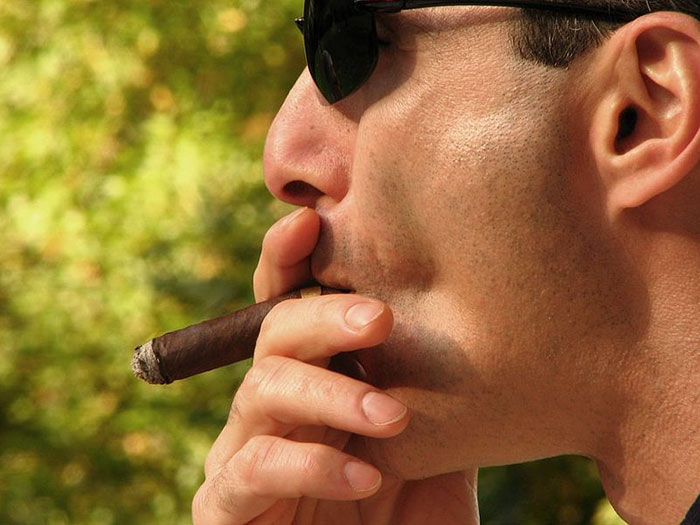 Close But No Cigar Meaning: almost but not quite successful. Origin: In the late 19th century carnival games were targeted to adults and not children, so the winners would get a cigar as a prize instead of stuffed animals. If the person was close to winning but did not succeed they’d say it was ‘close but no cigar’.
Close But No Cigar Meaning: almost but not quite successful. Origin: In the late 19th century carnival games were targeted to adults and not children, so the winners would get a cigar as a prize instead of stuffed animals. If the person was close to winning but did not succeed they’d say it was ‘close but no cigar’. -
22.
 Piece Of Cake Meaning: Something easily achieved. Origin: The saying ‘Piece of Cake’ comes from American poet Ogden Nash who, in 1930, was quoted saying ‘Life’s a piece of cake’.
Piece Of Cake Meaning: Something easily achieved. Origin: The saying ‘Piece of Cake’ comes from American poet Ogden Nash who, in 1930, was quoted saying ‘Life’s a piece of cake’. -
23.
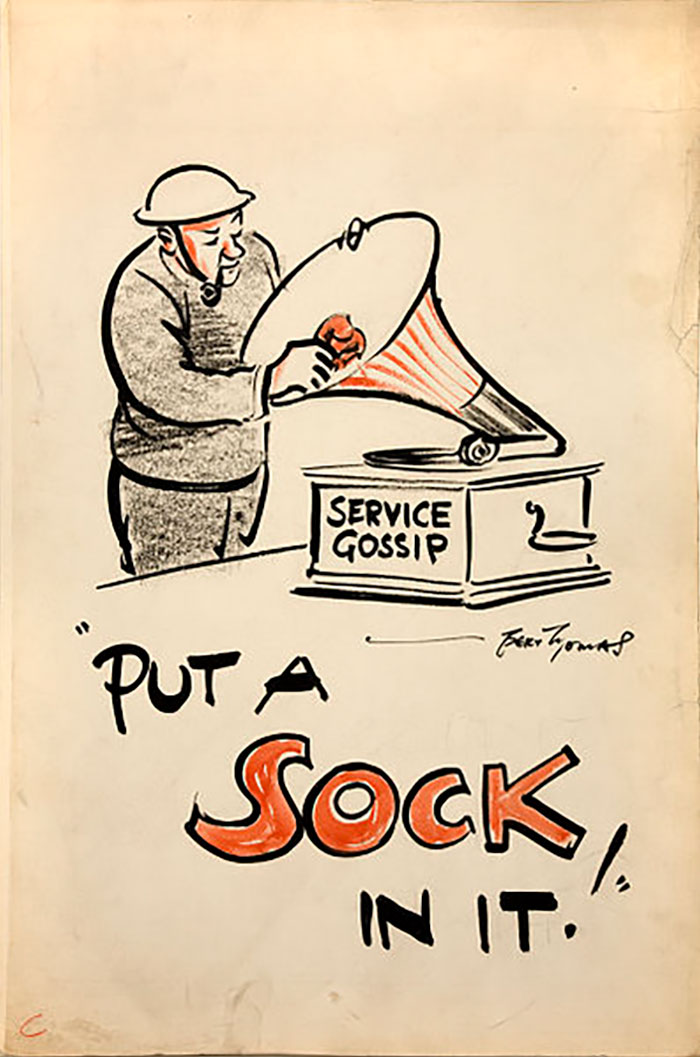 Put A Sock In It Meaning: Stop talking. Origin: In the late 19th century people would use woolen socks to stuff the horns of their gramophones or record players to lower the sound, since these machines had no volume controllers.
Put A Sock In It Meaning: Stop talking. Origin: In the late 19th century people would use woolen socks to stuff the horns of their gramophones or record players to lower the sound, since these machines had no volume controllers. -
24.
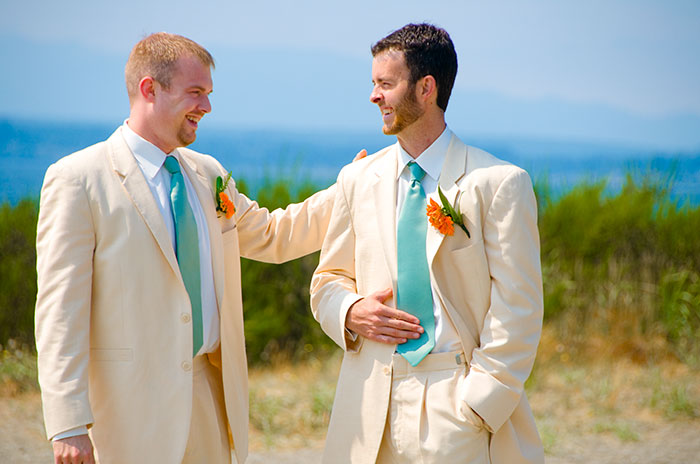 Best Man Meaning:A male friend or relative chosen by a bridegroom to assist him at his wedding. Origin: It is said that during feudal days it was possible that a rival Lord would try to break up a wedding ceremony and steal the bride for political reasons. To avoid any trouble, grooms would ask their best friends to stand next to them during the ceremony so they would help during the possible battle. The man, standing next to the groom was named ‘Best Man’.
Best Man Meaning:A male friend or relative chosen by a bridegroom to assist him at his wedding. Origin: It is said that during feudal days it was possible that a rival Lord would try to break up a wedding ceremony and steal the bride for political reasons. To avoid any trouble, grooms would ask their best friends to stand next to them during the ceremony so they would help during the possible battle. The man, standing next to the groom was named ‘Best Man’. -
25.
 Every Cloud Has A Silver Lining Meaning: negative occurrence may have a positive aspect to it. Origin: This expression can be traced directly from a piece written in 1634 by English poet John Milton called Comus: A Mask Presented at Ludlow Castle. He spoke of a silver lining of brightness behind a gloomy cloud, and soon afterward ‘Milton’s clouds’ became a staple of English Literature. The proverb ‘every cloud has a silver lining’ eventually came into being in the 1800’s, a time of optimism and positivity in the upper-classes of Victorian England.
Every Cloud Has A Silver Lining Meaning: negative occurrence may have a positive aspect to it. Origin: This expression can be traced directly from a piece written in 1634 by English poet John Milton called Comus: A Mask Presented at Ludlow Castle. He spoke of a silver lining of brightness behind a gloomy cloud, and soon afterward ‘Milton’s clouds’ became a staple of English Literature. The proverb ‘every cloud has a silver lining’ eventually came into being in the 1800’s, a time of optimism and positivity in the upper-classes of Victorian England. -
26.
 Steal One's Thunder Meaning: Win praise for oneself by pre-empting someone else's attempt to impress. Origin: You think that you’ve done something awesome and unique, but someone got in there first and took your credit! Spare a thought for playwright John Dennis who, back in the 18th Century, made a machine that could nicely mimic the sound of thunder for his play. Sadly, his play wasn’t a success, but somebody had taken note of his clever invention. When, later on in another theatre, Dennis found somebody had copied his thunder machine and was using it without credit, he got mad. Really mad. Somebody had stolen his thunder!
Steal One's Thunder Meaning: Win praise for oneself by pre-empting someone else's attempt to impress. Origin: You think that you’ve done something awesome and unique, but someone got in there first and took your credit! Spare a thought for playwright John Dennis who, back in the 18th Century, made a machine that could nicely mimic the sound of thunder for his play. Sadly, his play wasn’t a success, but somebody had taken note of his clever invention. When, later on in another theatre, Dennis found somebody had copied his thunder machine and was using it without credit, he got mad. Really mad. Somebody had stolen his thunder! -
27.
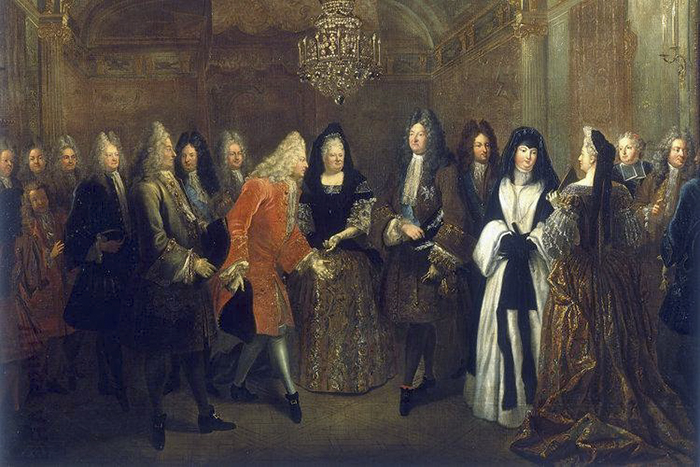 Blue Blood Meaning: Noble birth. Origin: Saying that some has blue blood comes from the Middle Ages, where it was believed that those who had pale skin (meaning their ancestor have not inter-married with darker skin partners) were noble or aristocrat. The main reasoning behind it is that when your skin is really pale, the veins are more visible and they usually look quite blue.
Blue Blood Meaning: Noble birth. Origin: Saying that some has blue blood comes from the Middle Ages, where it was believed that those who had pale skin (meaning their ancestor have not inter-married with darker skin partners) were noble or aristocrat. The main reasoning behind it is that when your skin is really pale, the veins are more visible and they usually look quite blue. -
28.
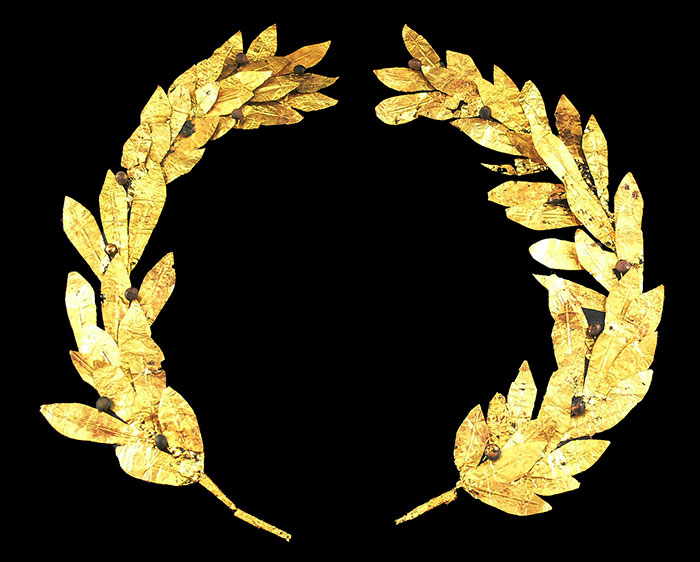 Resting On Laurels Meaning: Be so satisfied with what one has already achieved that one makes no further effort. Origin: Since ancient Greece laurel branches symbolized victory and success. This plan was closely tied to Apollo, the god of music, prophecy and poetry. Laurel branches were given to victorious athletes in ancient Greece and later to generals who won important battles, thus the term ‘laureates’ and the phrase ‘resting on laurels’. In the 19th century, the term received a negative connotation to describe those who are overly satisfied with their achievements.
Resting On Laurels Meaning: Be so satisfied with what one has already achieved that one makes no further effort. Origin: Since ancient Greece laurel branches symbolized victory and success. This plan was closely tied to Apollo, the god of music, prophecy and poetry. Laurel branches were given to victorious athletes in ancient Greece and later to generals who won important battles, thus the term ‘laureates’ and the phrase ‘resting on laurels’. In the 19th century, the term received a negative connotation to describe those who are overly satisfied with their achievements. -
29.
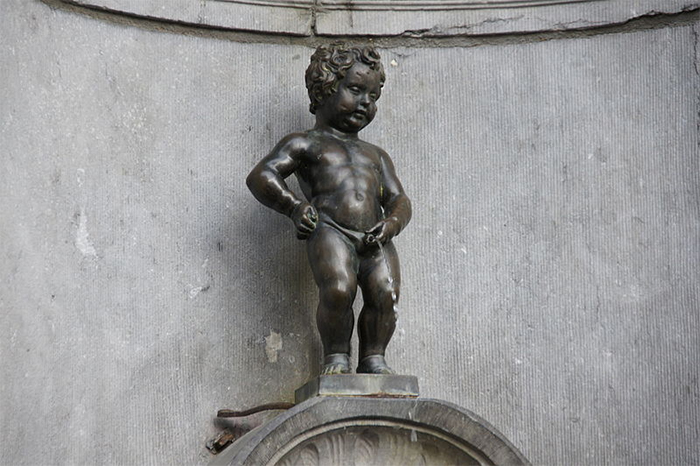 Take The Piss Meaning: mock someone or something. Origin: Back in the day, when clothes were dyed with natural dye, stale urine was used as a mordant, which stops the natural dye from leaching out of the cloth. The textile industry needed all the urine it could get, so workers would go around and collect specially designated chamber pots full of urine from people’s houses. It was probably the least desirable job at the time, so people who did it would often lie about their profession. And so the question was born from those in doubt: “Really? Are taking the piss?
Take The Piss Meaning: mock someone or something. Origin: Back in the day, when clothes were dyed with natural dye, stale urine was used as a mordant, which stops the natural dye from leaching out of the cloth. The textile industry needed all the urine it could get, so workers would go around and collect specially designated chamber pots full of urine from people’s houses. It was probably the least desirable job at the time, so people who did it would often lie about their profession. And so the question was born from those in doubt: “Really? Are taking the piss?
- REPLAY GALLERY
-

- 29 origins of common phrases
- NEXT GALLERY
-
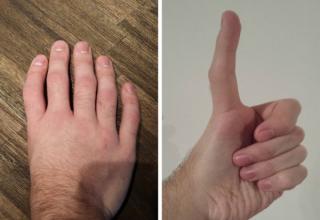
- 24 people with abnormal body features
The Walls Have Ears Meaning: Be careful what you say as people may be eavesdropping. Origin: The face Louvre Palace in France was believed to have a network of listening tubes so that it would be possible to hear everything that was said in different rooms. People say that this is how the Queen Catherine de’Medici discovered political secrets and plots.
29/29
1/29
Categories:
Wow


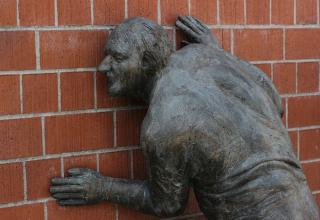




0 Comments